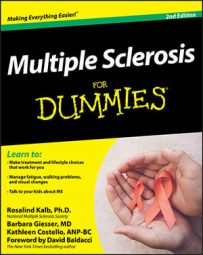Depression differs from normal grieving you may experience with multiple sclerosis (MS). But differentiating between the two on a day-to-day basis can be difficult because some of the feelings are similar and because depression can manifest itself in ways other than sadness or melancholy (for example, it can be shown through irritability and sullenness). The key element that distinguishes depression from normal grieving is its persistence over an extended period of time.
For the doctor to diagnose a major depressive episode, a person must have experienced at least five of the following nine symptoms (one of which must be either depressed mood or decreased interest) for most of the day every day for a minimum of two weeks:
Depressed mood (feeling blue, irritable, hopeless)
A significantly reduced level of interest or pleasure in most or all activities
Considerable weight loss or gain (5 percent or more change of weight in a month) or change in appetite
Frequent thoughts of death or suicide, or attempted suicide
Difficulty falling or staying asleep (insomnia) or sleeping more than usual (hypersomnia)
Behavior that’s visibly agitated or slowed down
Feeling fatigued or very low in energy
Having thoughts of worthlessness or extreme guilt
A diminished ability to think, concentrate, or make decisions
A quick review of this symptom list tells you why depression can be tricky to diagnose in people with MS. All of the last five symptoms can also occur in MS, even in the absence of depression. So, you may need a consultation with a mental health specialist with expertise in MS to make the diagnosis.
Unfortunately, physicians still don’t routinely ask about patients’ moods. If you notice any significant changes in your mood (or your loved ones do), talk to your doctor about them. You don’t need to feel embarrassed or awkward — mood changes are as much attributable to your MS as any other symptom and are among the most treatable.

